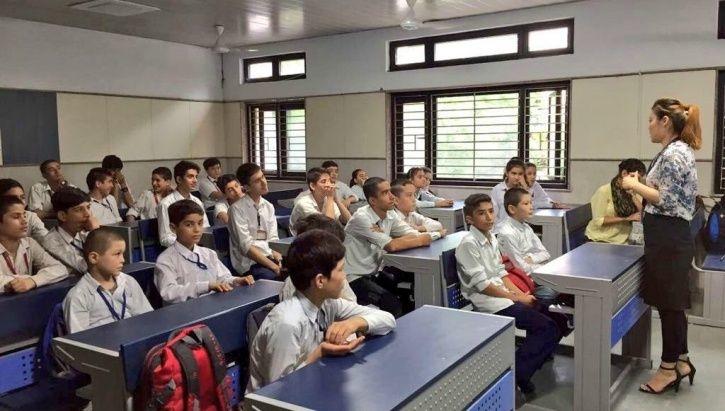
In Brazil, the impeachment of the president appears to be doing wonders for financial markets. The initial step to remove President Dilma Rousseff from office, taken in the country’s capital Brasilia Sunday evening, is fortifying a rally in Brazilian markets that has strengthened as Rousseff’s prospects of staying in office have weakened. Commodity prices, a central pillar of the Brazilian economy, have staged a modest rebound.
Lawmakers in Brazil’s lower house of Congress approved articles of impeachment against Rousseff over alleged manipulation of economic data to improve the apparent performance of her government. Proceeding amid a separate, long-running investigation into kickbacks involving the state oil company Petróleo Brasileiro (Petrobras), the case now moves to the Brazilian Senate.
Under the Brazilian constitution, the Senate must first confirm the charges by majority vote, a step that would automatically replace Rousseff with Michel Temer, the vice president. Her permanent removal could come only with a two-thirds vote to convict her on the impeachment charges.
The prospect of Rousseff’s exit is already heartening investors, who see her as a barrier to serious economic reforms that would curb a swelling budget deficit and provide enough stability to reignite business investment and pull out of a recession that saw the economy shrink 3.8 percent in 2015.
The Brazilian real has rallied to such an extent that the central bank intervened Monday to weaken it as a way to protect the country’s exporters, after the currency bounced almost 2 percent in the morning. Brazilian equities also rose, beginning with stocks that were traded on the other side of the world, in Asia.
“Brazil is being dragged down by the increasingly widespread perception that politicians are either unwilling or incapable of correcting the many imbalances that have accumulated in the economy over the past six years,” said Marcos Casarin, head of Latin America macro research at Oxford Economics in London. “In such an environment, companies do not invest or hire more and consumers tend to increase precautionary savings, causing domestic demand to plunge at a time when external demand is sluggish.”
Rousseff’s increasingly likely fall has drawn the spotlight to Temer, the vice president, who belongs to the Brazilian Democratic Movement Party (PMDB). Although allied with Rousseff’s Workers’ Party in the latest presidential election, Temer’s party broke with her this year over the corruption investigation and recently has supported her impeachment.
Temer’s party is nominally centrist, but it has no particular ideology welding together a diverse membership. It has generally supported a middle-of-the-road economic policy under Rousseff, her predecessor Luiz Inácio Lula da Silva and the conservative Fernando Henrique Cardoso who preceded Lula.
Temer’s support of that kind of policy came at a time when Brazil’s economy piggybacked on a global commodities boom. Now, the policies Brazil needs won’t come in a time of plenty, but Temer appears to be adopting the stance of a reformer, not the stance of a defender of the Workers’ Party.
“Temer and his advisers understand they will enjoy a brief honeymoon period,” Christopher Garman, managing director and head of country analysis at the Eurasia Group, wrote in a note to clients. “As such, they have clearly decided that positioning themselves as the solution to the economic crisis is the best pathway to survive politically.”
If the Senate removes Rousseff, the trick will be to getting out ahead of markets by the time that happens.
“It really now all hinges on economic team nominations and announcements on concrete policy measures,” Alejo Czerwonko, an emerging-markets investment strategist at UBS Wealth Management, which oversees $1 trillion in assets, told Bloomberg News. “You need an economic team with the necessary credibility and signs of success.”
In the fast-moving scene in Brazil, local media have speculated on whom might be called on by Temer to steward economic policy. Reports have named Arminio Fraga and Henrique Meirelles, two former central bank presidents who enjoyed the broad confidence of finance and business. Reuters also reported Temer was considering Luiz Fernando Figueiredo, a former central banker now in the private sector, and Paulo Leme, the chairman of the Goldman Sachs Group unit in Brazil.
Meanwhile, the corruption investigation related to Petrobras could also yet ensnare Temer’s party more seriously, according to the Eurasia Group.
Known as Operation Car Wash (“Lava Jato” in Portuguese), the probe has drawn in members of the PMDB. A hit to the integrity of top officials in the party could both sap the momentum toward Rousseff’s impeachment and hamper a Temer government’s effort to impose economic change.
“The Lava Jato investigations will continue to unfold, threatening to implicate the leadership of the PMDB,” the Eurasia Group’s Garman wrote. “If the PMDB is hit with allegations of corruption over the next three weeks, that could further reduce support for impeachment.”
[source :-ibtimes]



